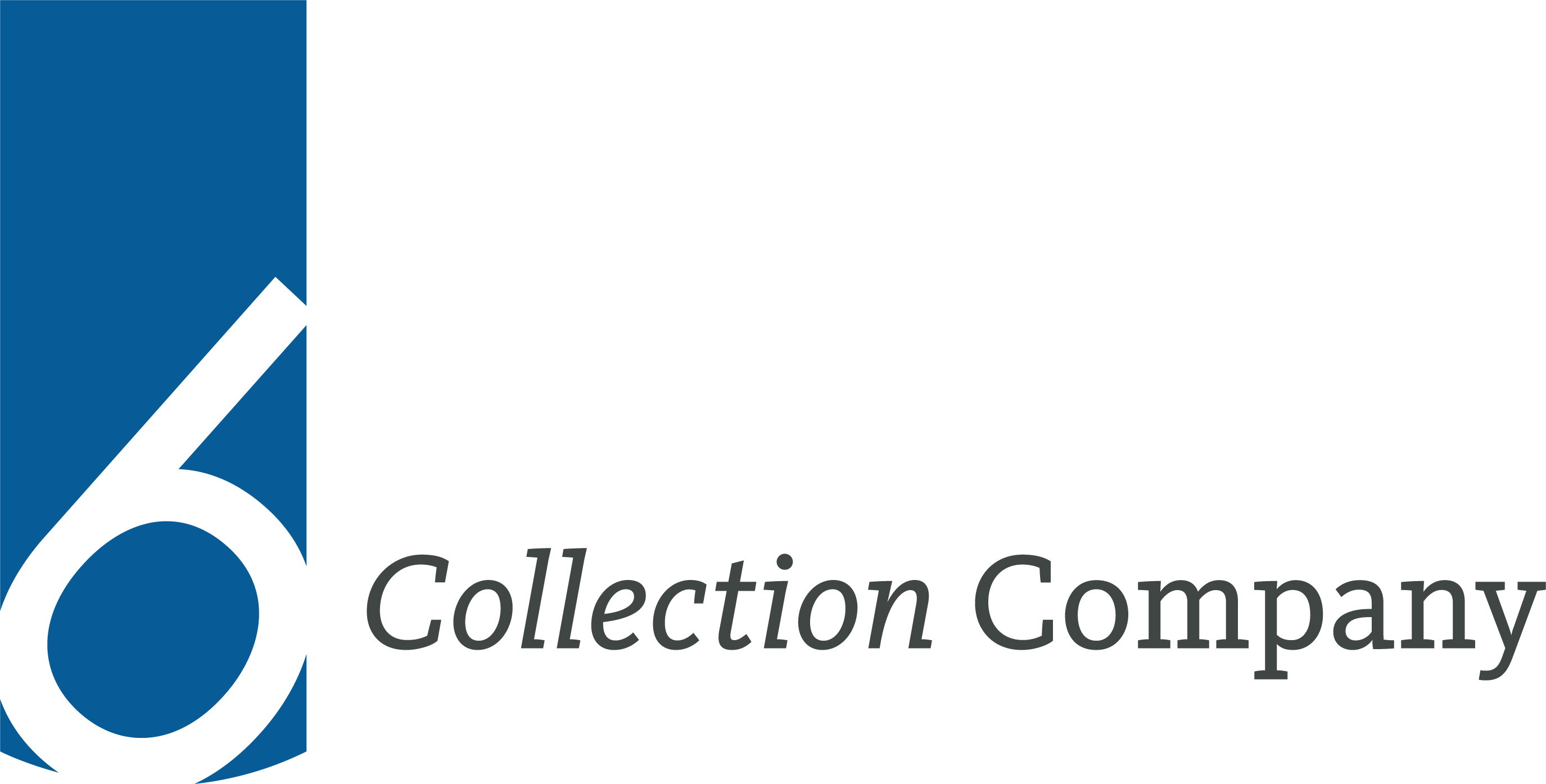Debt Collection Dubai: recovering debts in the United Arab Emirates
More and more people do business in Dubai. But what if a customer in Dubai doesn’t pay you? Or if you get involved in a business dispute? As an international debt collection agency Collection Company helps you to recover debts in Dubai.
In order to do so, we use our global network of lawyers, attorneys, and bailiffs. Together with these specialists on site, we take the actions needed to recover any outstanding debts as soon as possible.
- Nationwide coverage the United Arab Emirates
- One dedicated English speaking contact
- Proven track record
- Tailor-made services for each case
- Expert advice and a transparent process
- 24/7 online access
Specialized in international debt collection
Dubai is booming. Not only is it a trendy holiday destination, it is also a popular place for investors and entrepreneurs. More and more people are doing business in this city in the Emirates. Unfortunately, conducting business abroadinvolves certain risks. What do you do if your debtor doesn’t pay you? Which institutions can help you?
Collection Company is your partner in recovering debts. As a specialist in international debt collection, we use the best debt collection practices to quickly and efficiently recover your outstanding invoices and other unpaid bills.
To achieve a fast and efficient debt collection, we work according to our proven international debt collection strategy, collaborating with a network of local debt collection specialists such as lawyers and bailiffs. They are specialised in the local laws and regulations and know exactly what needs to be done to make sure that your outstanding claim will be paid as quickly as possible.
We can locate your debtor, send payment reminders, conduct legal proceedings, and seize assets from your debtor.
During the debt collection process, you will have one dedicated English speaking contact person. This debt collection agent coordinates the process and stays in touch with the local specialists. This way, you can communicate in English.
You can track the progress of the procedure 24/7 in our Online Cockpit.
Submit your claim directly?
Has your client in Dubai not paid an invoice? Or do you have another outstanding claim in this city? Fill out our contact form and one of our specialists will contact you to discuss your claim.

Why choose Collection Company for debt recovery in Dubai?
- Global coverage
- One dedicated English speaking contact
- Experienced debt collection specialists with knowledge of Dubai legislation
- Broad network with local lawyers and bailiffs
- Seamless connection from extrajudicial to judicial action
- Effective local approach
- 24/7 tracking through your own Online Cockpit
How Dubai debt collection works
The debt collection process in Dubai is fairly similar to that in other countries. The procedure can roughly be divided into two phases: the extrajudicial and judicial procedures.
Extrajudicial (also known as amicable) debt collection consists of a series of efforts to collect the debts without taking the case to court. This phase includes sending payment reminders.
If this does not result in payment, we can take the matter to court in Dubai. The court can order your debtor to pay the outstanding invoice.
Below, we explain in detail what both the extrajudicial and judicial phases of the debt collection process look like in Dubai.
- Upload your invoice online
- We'll start your case
- We'll start with the debt collection process
- Together we decide the best strategy for collecting your debts
- Monitor the status of your case 24/7
- Any questions? Your personal accountmanager will answer them all!
- Your invoice is paid
Amicable collection
Extrajudicial or amicable debt collection is a fast and efficient procedure to recover your money. If you file your claim with us, the first thing we do is contact your debtor and remind them of their obligations to pay the outstanding debt. Our debt collectors send an official notice to the debtor, but we also try to get in touch with your debtor personally, through phone calls, by sending emails, and WhatsApp or SMS messages.
All communication is conducted on our behalf. This way, your debtor immediately understands the gravity of the situation. When necessary we will approach your debtor in his own language. This way they can’t claim that they didn’t understand our messages.
If needed, we will contact your debtor no less than 16 times in a period of 3 weeks. This ensures that the procedure is completed quickly. Throughout the process, we gradually increase the pressure we put on your debtor. Eventually, your debtor will receive a final demand letter, informing him that we will take legal action if the payment is not fully made on the due date in the letter. We also specify what the costs of legal actions will be.
Most debtors understand that they will only get into more trouble if they don’t pay the bill and therefore settle the outstanding debt (or attempt to negotiate a payment plan). In most cases, we successfully collect the outstanding amount during the amicable phase.
Judicial proceedings in Dubai
In some cases your debtor simply refuses to pay, even after sending official reminders and warnings, and after our debt collection agent has personally contacted him. In that case, the next step is to take matters to court. After all, you are entitled to your money.
Filing a lawsuit
If your debtor lives in Dubai or the company you do business with is based there, we will have to initiate legal proceedings at one of the courts in Dubai. In civil matters, this is primarily the Court of First Instance. Only in disputes within the Dubai International Finance Centre (DIFC) special economic zone, the case should be filed with the DIFC court. Here proceedings are conducted in English.
To initiate court proceedings we are required to submit a Statement of Claim to the court. This can be done physically (at the Case Management Office) of the court or digitally (via an eFile). We’ll have to provide both the plaintiff’s and the defendant’s personal details, along with a description of the claim.
Furthermore, we need to submit supporting documents for your claim. These may include contracts, invoices, payment reminders, or email correspondence. All submitted documents must be translated into Arabic (unless the case is filed with the DIFC court).
If you transfer your claim to us, we will take care of all the paperwork. You won’t have to worry about anything.
Summons
Within 10 days from the date the statement of claim was filed, the clerk of the court will, through the court official (bailiff), notify the defendant. Next, a date for the hearing is determined. Depending on the case and the urgency, your debtor has 3 to 10 days to submit a defense.
Appearing before court
On the day of hearing, both parties or their attorneys are required to appear before court. They can submit extra documents (if permitted by the judge) and motivate their position. After examining the submitted evidence and listening to the arguments, the judge will make a ruling. The judgment is always publicly announced.
When you transfer your collection case to Collection Company, we ensure that you’re represented in the best possible way in court. We work together with top lawyers and legal experts in Dubai.
Judgment
In the judgment the court will state who will bear the costs of the lawsuit (including expenses for legal representation). Usually the losing party must reimburse (part of) the expenses paid by the other party. Both parties can then still contest the verdict of the Court of First Instance before the Court of Appeal in Dubai.
Arbitration
It is also possible to bypass the judicial system of Dubai. This can be done through alternative methods of dispute resolution, such as arbitration. This is an alternative form of jurisdiction where the issue is resolved without the ruling of a government judge.
Instead of bringing the case to court, one or more arbitrators are appointed. These are usually specialists from the industry itself.
These arbitrators act as judges. Just like in a regular lawsuit, both parties can submit evidence and motivate their position during a hearing. Based on this, the arbitral tribunal then makes a decision. Similar to a court judgment, this verdict is binding.
It is only possible to use arbitration as a way to resolve a business dispute if both parties agree to it. This can be done once the conflict arises, but also in advance, for example by including it in the purchase agreement or general terms and conditions. After an arbitration case, it is not possible to submit the case to a government court.
The advantage of arbitration is that the case is judged by specialists, that the dispute can be resolved faster, and that additional agreements can be made, such as no possibility of appeal or handling the case behind closed doors.
An arbitral award can be executed in the same way as a judgment.
Enforcement in Dubai
If the ruling in the legal proceedings is in your favor, we will have to enforce the judgment or arbitral award if your debtor doesn’t pay voluntarily. The execution of judicial awards works slightly differently than in some countries, where it is possible to file your case with a private bailiff.
In Dubai, we can enforce the judgment through the Execution Court of the Court of First Instance. This court then appoints a bailiff to execute the judgment. The judge can also immediately order the recovery of the debt collection expenses.
Execution of a judgment can, for example, be done by seizing bank accounts, wage attachment or garnishment, or seizing other assets of your debtor. Once the bailiff has collected the funds, they will be paid to the plaintiff.
Interim remedies
Like in most countries it is possible to take preliminary measures before a lawsuit is filed. In Dubai this can be done by freezing bank accounts or temporarily seizing possessions of your debtor. This prevents your debtor from spending their money or getting rid of their assets before the court comes to a judgment and there is nothing left for you to recover.
To take interim measures in Dubai, we need to request the court for permission. The court then assesses the case based on several factors:
- The presence of assets and the risk of them being disposed of
- The feasibility of the case
- The significance of the case (including the amount of the claim)
- The level of inconvenience experienced by the defendant due to the interim remedies
If the court, based on these factors, determines that a prejudgment attachment is reasonable, a court bailiff is appointed to execute the attachment.
By obtaining permission for interim remedies, we have the assurance that we can enforce a future court judgment. It also serves to put pressure on your debtor. As long as the attachment is in place, the debtor has no access to their assets. Most debtors choose to pay the outstanding debt in order to lift the attachment.
Bankruptcy of your debtor
Sometimes a debtor (claims that they) can’t pay their debt. Even in that case we have several options to collect your money. If your defaulter has bad debts one of those options is to file for their bankruptcy. In Dubai, it is possible to apply for the bankruptcy of a debtor if:
- the outstanding debt is at least 100,000 AED
- the debtor is in default of payment of a due debt for more than UAE business days
A file for bankruptcy is a powerful leverage tool. If your debtor goes bankrupt, the company is disbanded and your debtor loses their possessions. Most people want to avoid this at all costs and pay the outstanding debt when a bankruptcy procedure is initiated. When we receive the payment of the debt, we can then withdraw the file for bankruptcy.
Does your debtor still not pay? Then they will actually go bankrupt. The judge in Dubai will appoint a trustee. The trustee tries to pay off as many creditors as possible from the bankrupt estate.
Advice about your case?
Submit your contact details and one of our debt collection specialists will contact you immediately!

Legal areas of debt collection in Dubai
Our debt collection agency can assist you with various types of claims in Dubai. This includes unpaid invoices, as well as unreimbursed loans, damage claims, rental arrears, overdue salaries, or claims related to the purchase or sale of real estate.
We specialize in claims within the following legal areas:
- Construction law
- Renting and leasing
- Buying and selling
- Labor law
- Agency agreement
- Transportation
- Damages and wrongful acts
We do not only collect debts for creditors directly but we also work for intermediaries such as lawyers and accountants.
Anything else we can help you with?
- Reliable advice on contracts and terms
- Credit information on companies in Dubai
- Disputes regarding, among others, retention of title and right of reclamation
- Mediation in reaching private agreements and settlements
Start you debt collection in Dubai now
Fill out our debt recovery registration form to submit your claim. Do you rather get personal advice from a debt collection specialist first? Submit your contact details or call us at 070 – 410 2800.
More information?
Would you like to receive more information about debt collection in Dubai? Please leave your contact details and we will get in touch with you as soon as possible.

FAQ: Frequently asked questions about debt collection in Dubai
FAQ: What do we need to start collecting your debt in Dubai?
To build a case, we would like to receive as many documents as possible related to your claim. These documents can be used to assess the likelihood of winning a potential lawsuit and serve as evidence during legal proceedings. This ensures that we come well-prepared and can prove the legitimacy of your claim in court.
We understand that you might not have all the requested documents. Even if certain documents are missing, you can still transfer your claim to us. Together with our collection specialist, you can discuss how we can prove the claim.
If you have them, we would like to receive (copies of) the following documents:
- Contracts or agreements, emails discussing the arrangements, a fax confirmation, etc.
- A summary of the agreement
- Invoices
- Payment reminders
- Terms and conditions
- Proof of delivery
FAQ: Which language is used in Dubai courts?
In Dubai, Arabic is used as the main language during court cases. All documents filed to the court need to be in Arabic. If the documents are originally in another language, they must be translated into Arabic.
The Dubai International Finance Centre (DIFC), a special economic zone, has its own court. Here, English is used, and documents can be submitted in English as well.
FAQ: Can I hire a lawyer in Dubai?
In Dubai it is possible to hire a lawyer for legal advice and to represent you before court. However, in Dubai, only someone with the UAE nationality is allowed to act as a lawyer. The lawyer must be officially sworn in by the Ministry of Justice of the UAE.
FAQ: Is a retention of title valid in Dubai?
In Dubai it is possible to agree on a retention of title. This means that ownership only transfers to the buyer once the full agreed upon amount has been paid. In Dubai, parties have the freedom to determine their contractual terms as long as they do not conflict with the law. Thus, the details of the retention of title can be discussed by the parties.
FAQ: Is there a statute of limitations for claims in Dubai?
Claims in Dubai are not indefinitely recoverable. There is a statute of limitations that applies. The length of the statute of limitations depends on the type of claim. The general statute of limitations is 15 years, but certain jurisdictions have shorter limitations periods, such as 3 years or even just 1 year.
FAQ: Why not hire a debt collection agency in Dubai?
If you have outstanding debts in Dubai, you can also choose to transfer your claim to a local debt collection agency in Dubai. However, this has a number of disadvantages. For example, you still have to deal with the time difference and the language barrier.
Furthermore, many debt collection agencies only handle the extrajudicial phase of the debt recovery process. If you need to take legal action, you will have to find a law firm yourself. Additionally, it can be difficult to assess which collection agency is reliable, especially if you can’t read reviews because you can’t read Arabic.
Collection Company specializes in debt recovery and takes care of the entire collection process, from the extrajudicial to the judicial phase and enforcement. You have a dedicated contact person and you can monitor the progress yourself via your own Online Cockpit.
Why 40.000 customers have gone before you
- The #1 collection company in the Netherlands and abroad
- Regional & local specialists
- Years of experience with international invoices
- Your own personal contact
- Extensive advice on the legal process
- Monitor the status of your case 24/7
Meet our specialized legal team
- Joost Konings LLMLaw expert
- May Leung LLMLaw expert
- Wesley Boeters LLMInterim lawyer





